Moyamoya disease is a rare yet critical condition affecting the blood vessels in your brain. It leads to the narrowing of arteries, which can result in reduced blood flow and an increased risk of strokes and brain bleeds.
Recognizing the symptoms of moyamoya disease early is vital for effective management and treatment. These symptoms can include strokes, seizures, headaches, and even cognitive challenges.
The cause of moyamoya disease lies in its complex pathophysiology. In this condition, the arteries in the brain progressively narrow, leading to the formation of tiny, tangled vessels that resemble puffs of smoke, a pattern that lends the disease its name.
Understanding this can help in identifying and diagnosing the disease, which is often confirmed through imaging techniques and specialized tests.
If you suspect any of these signs, it’s important to consult with Dr. Morrison for a thorough evaluation and possible intervention.
Treatment options for moyamoya disease focus on improving blood flow to the brain and preventing further complications.
These may include surgical procedures, medications, and ongoing management strategies tailored to your specific condition.
Advances in research continue to shed light on more effective approaches, offering hope for improved outcomes.
Consulting with Dr. Morrison can help you navigate these options and maintain an optimal quality of life.
Key Takeaways
- Moyamoya disease causes narrowing of brain arteries.
- Early symptoms include strokes and cognitive problems.
- Treatment aims to improve blood flow and prevent complications.
Pathophysiology and Causes
Moyamoya disease is a chronic condition involving the progressive narrowing of arteries in the brain, leading to reduced blood flow. Genetic mutations and various risk factors play significant roles in its development and progression.
Genetic Factors
The condition often has genetic links. The RNF213 gene is strongly associated with the disease, particularly in Asian populations.
Mutations in this gene can lead to abnormal vessel formation. These genetic changes affect blood flow to the brain, specifically impairing the internal carotid arteries and the circle of Willis.
Research indicates that these genetic factors may cause arteries in the basal ganglia region to narrow, potentially leading to moyamoya disease.
While not all cases are genetic, understanding your family history can be essential in early detection.
If you suspect genetic links, consider discussing further with Dr. Morrison for advice on genetic testing.
Associated Risk Factors
Certain conditions increase the risk of developing moyamoya disease. These include Down syndrome, neurofibromatosis type 1, and sickle cell disease.
People with these conditions may have a higher chance of developing the narrowing of arteries in the brain.
Additionally, the risk can be higher in individuals of Asian descent. The disease sometimes appears in children due to these conditions, but it can affect adults as well.
Managing associated conditions proactively can help reduce complications.
If you or a loved one is at risk, talk to Dr. Morrison about ways to monitor and manage these factors effectively.
Symptoms and Diagnosis
Moyamoya disease is a serious condition affecting blood vessels in the brain. Understanding key symptoms, such as transient ischemic attacks or strokes, is crucial. Early diagnosis usually involves advanced imaging techniques.
Common Symptoms
Moyamoya disease can cause symptoms like a transient ischemic attack (TIA), which might feel like a mini-stroke. These attacks can result in weakness or numbness on one side of the body.
Full strokes are also possible and can cause longer-lasting damage.
In children, symptoms often include seizures and headaches. Adults may experience similar issues along with vision problems and speech difficulties like aphasia.
Recognizing these symptoms early can help prevent severe complications. If you notice any of these signs, it’s essential to consult Dr. Morrison right away.
Diagnostic Imaging and Tests
Diagnosing moyamoya disease involves multiple tests.
Commonly, a CT scan or a magnetic resonance imaging (MRI) will provide detailed images of the brain to show blood flow patterns.
An angiogram is also a key test that examines the blood vessels directly.
This test is vital in confirming narrow or blocked arteries. Sometimes, an EEG may be used if seizures are a concern.
These tests collectively help in forming an accurate diagnosis. If recommended, make sure to schedule these tests with your healthcare provider.
Treatment and Management
Moyamoya disease requires careful handling to reduce risks and manage symptoms. Key approaches include surgery to improve blood flow and medications to control symptoms and prevent complications.
Revascularization and Surgery Options
To manage moyamoya disease, surgical options like revascularization are often recommended.
This process involves creating new pathways for blood to reach the brain, reducing stroke risk.
Direct bypass surgery connects a scalp artery to a brain artery, improving blood flow. Indirect methods encourage new blood vessel growth over time.
The choice of surgery depends on individual needs, so discussing options with Dr. Morrison is crucial.
Surgical intervention remains a significant step in managing the disease and helps in preventing future complications.
Medication and Therapy
Medications play a vital role in moyamoya disease management.
Blood thinners may be prescribed to prevent clots, while calcium channel blockers can help reduce headaches.
Therapy for symptoms like impaired speech or movement is also crucial.
These treatments aim to improve quality of life and decrease stroke risk.
It’s essential to follow a personalized plan and have regular check-ins with Dr. Morrison to adjust medications as needed.
Consistent medication management is key to controlling symptoms and enhancing daily living.
Complications and Prognosis
Moyamoya disease can lead to serious complications due to reduced blood flow in the brain. Understanding these complications and what they mean for long-term health is crucial for managing the disease effectively.
Potential Complications
Moyamoya disease primarily raises the risk of strokes, both ischemic and hemorrhagic.
When blood flow is restricted, an ischemic stroke can occur, which means the brain isn’t getting enough blood.
Conversely, the tiny vessels formed as a result of the disease can leak or rupture, leading to intracerebral hemorrhage.
Symptoms from these strokes might include paralysis, seizures, and vision problems. Additionally, there could be issues with speech or motor skills.
It’s important to watch out for these signs and contact Dr. Morrison if you notice anything unusual.
Long-term Outlook
The prognosis for moyamoya disease varies and depends largely on timely treatment.
Early detection and medical care can improve outcomes significantly.
Surgical interventions such as revascularization aim to restore normal blood flow and reduce the risk of future strokes.
Patients who undergo successful surgery often experience a noticeable decline in stroke risk.
Long-term management through medications and regular check-ups with Dr. Morrison can maintain blood flow and prevent complications.
Adhering to prescribed treatments and monitoring symptoms helps manage the disease effectively.
Research and Future Directions
Moyamoya disease research explores clinical trials and emerging treatments like revascularization surgery. Studies focus on understanding the genetic factors and evaluating the effectiveness of therapies.
Clinical Research and Trials
Clinical research aims to better understand moyamoya disease. Researchers study the progression and impact of the condition.
The well-known Suzuki stages are used to classify the disease’s severity over time. This helps doctors predict patient outcomes and tailor treatments.
Several clinical trials investigate different treatment options. Some focus on drug therapies to manage symptoms or prevent strokes.
Others explore surgical options, such as direct and indirect revascularization surgery.
These surgeries aim to restore blood flow to the brain and improve patients’ quality of life. Participation in trials offers insights into treatment effectiveness and safety.
Emerging Therapies
Emerging therapies target genetic factors associated with moyamoya disease.
Research suggests a genetic link, and scientists are identifying risk factors that could lead to new interventions.
Innovative surgical techniques are under evaluation. Enhanced imaging methods improve the accuracy of diagnoses and surgical outcomes.
New therapies, like novel medications or minimally invasive procedures, are under investigation.
To explore treatment options or participate in emerging therapy trials, consult with Dr. Morrison.
He can provide guidance and assess the suitability of specific treatments for your situation.
Frequently Asked Questions
Moyamoya disease is a rare condition that affects blood vessels in the brain, leading to serious health issues. It requires specific medical attention, including diagnosis through unique radiological findings and tailored treatment plans.
What are the common symptoms of Moyamoya disease?
Symptoms often include strokes or transient ischemic attacks (TIAs), severe headaches, and seizures. Some people experience weakness on one side of the body.
It’s important to recognize these signs early to manage the disease effectively.
How is Moyamoya disease treated?
Treatment usually involves surgical intervention to improve blood flow to the brain. This may include procedures like bypass surgery. Medications can be used to manage symptoms and reduce stroke risk.
It’s crucial to work closely with Dr. Morrison for a treatment plan tailored to your needs.
What is the typical life expectancy for someone diagnosed with Moyamoya disease?
With proper treatment, individuals can live fulfilling lives, although it depends on factors like age, severity, and response to treatments.
Early diagnosis and management are key to improving outcomes and minimizing complications.
Which radiological findings are indicative of Moyamoya disease?
MRI or CT scans can reveal narrowing of key arteries in the brain and the formation of collateral vessels, often referred to as a “puff of smoke” appearance.
These findings help in correctly diagnosing Moyamoya disease and assessing disease progression.
Are there dietary recommendations for individuals with Moyamoya disease?
While specific dietary recommendations are not universal, maintaining a healthy, balanced diet can support overall well-being.
It is advised to consult with Dr. Morrison to create a personalized dietary plan that suits your health needs.
What are the main causes of Moyamoya disease?
Moyamoya disease is often linked to genetic factors, as seen in some familial cases. It’s more common in certain ethnic groups, particularly in people of Asian descent.
Understanding these risk factors can help in managing and assessing the likelihood of developing the condition.
Let Morrison Clinic Help Today
Are you seeking specialized care for Moyamoya disease? The Morrison Clinic is dedicated to providing expert treatment for this rare cerebrovascular condition.
With advanced diagnostic tools and a patient-centered approach, the clinic ensures precise management of symptoms and complications.
Why Choose Morrison Clinic?
Dr. Morrison is a leading expert in Moyamoya disease. He offers personalized care tailored to each patient’s unique needs, with years of experience and numerous successful treatments. The clinic’s team works diligently to provide comprehensive support, from initial diagnosis to ongoing management.
Advanced Treatment Options
Morrison Clinic uses state-of-the-art imaging techniques to accurately assess the condition. This approach allows for customized treatment plans that may include surgical procedures or medication to improve blood flow and reduce the risk of stroke.
Schedule a Consultation
If you suspect you have symptoms associated with Moyamoya disease, don’t delay. Book an appointment with Dr. Morrison today.
The Morrison Clinic is committed to delivering exceptional care and improving the quality of life for patients with this challenging condition.
Contact Information
For more details on scheduling and available services, please fill out the form below or call the office directly.
Take charge of your health with the expertise and compassionate care available at Morrison Clinic.

